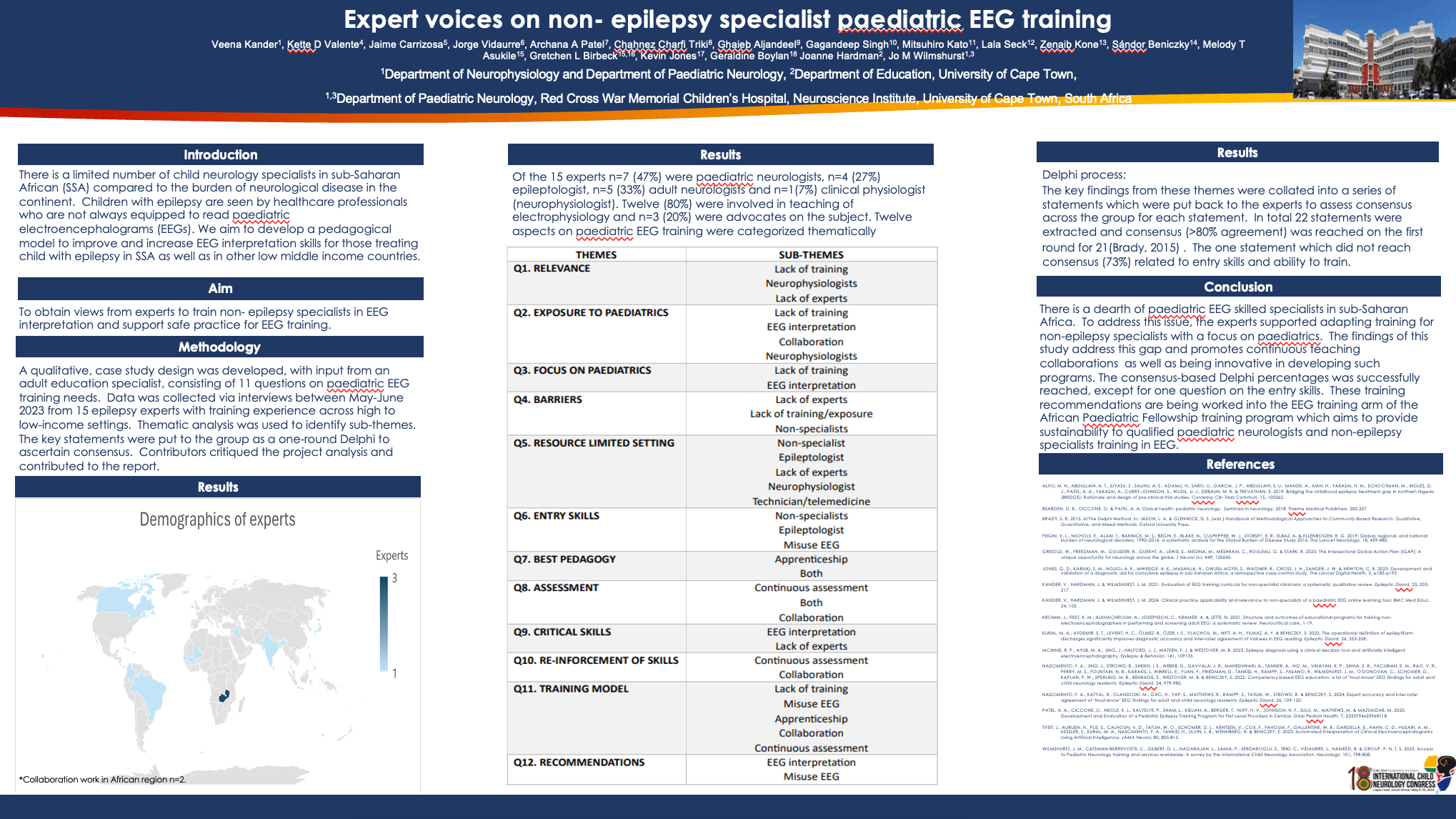Expert Voices On Non-specialist Paediatric EEG Training
Sub-Saharan African (SSA) has limited numbers of child neurology specialists despite the high burden of neurological disease in the continent. Children with epilepsy are seen by healthcare professionals who are not equipped to read electroencephalograms (EEGs). We aim to develop a pedagogical model to improve and increase EEG interpretation skills for those treating children with epilepsy in SSA as well as in other low- and middle-income countries. Aim: To obtain consensus from experts on the essential curriculum content which is necessary to train non-specialists in EEG interpretation and to support safe practice for EEG training. Method: A qualitative, case study design was used consisting of eleven key questions on paediatric EEG, which was developed with the support of an adult education specialist. Data collected included interviews from 15 epileptology specialists across high to low-income countries. Consent was obtained and an invitation to collaborate with the project offered. Data from the 11 questions were analysed using a thematic analysis. This enabled identification of various themes arising from the interview. Results: Findings relate to twelve aspects on paediatric EEG training; these were categorised thematically as: relevance; exposure to paediatrics; focus on paediatrics; barriers; resource limited setting; entry skills; best pedagogy; assessment; critical skills; re-inforcement of skills; training model and recommendations. Conclusion: The main findings
Veena Kander
Red Cross War Memorial Childrens Hospital
South Africa
Jo Wilmshurst
Red Cross War Memorial Childrens Hospital
South Africa
Joanne Hardman
University of Cape Town
South Africa
